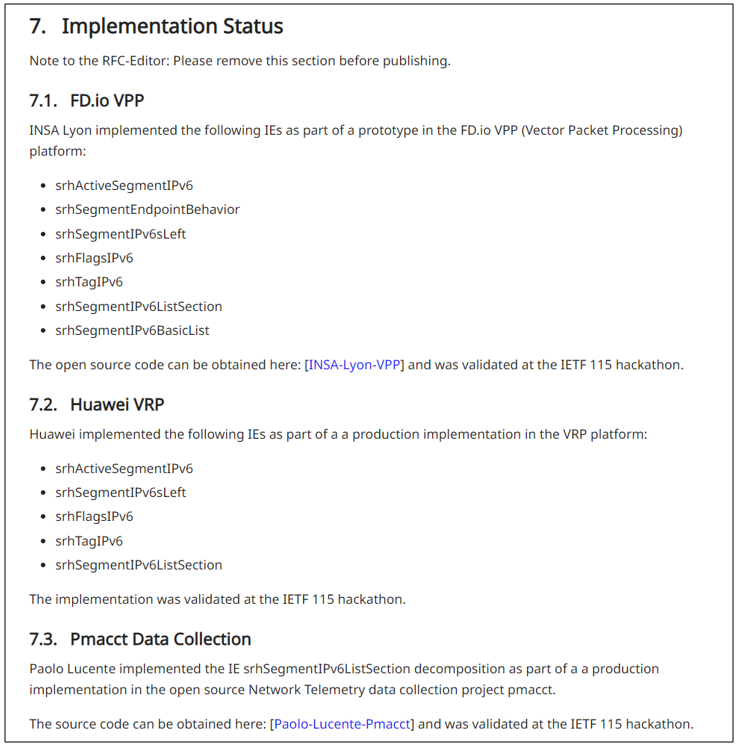Just back from the IETF 115 in London last week. While the previous two IETF meetings in Vienna and in Philly were kind of “tentative” physical meetings in the post-COVID era, with a limited amount of IETFers physically present on site, this meeting was actually the first “normal” IETF meetings. Many WG meetings, many side meetings, many lively bar discussions, some innovations, and collaboration commitments. No wonder with 854 people on site. The Hachathon, on Saturday & Sunday was the most attended ever, with 456 coders.
In this Hackathon, we spent some time on my first networking love: IPFIX, i.e. IP Flow Information export. My first IETF meeting ever was in 2001, for a flow monitoring BoF. The rest is history: IPFIX has been standardized (From NetFlow to IPFIX via PSAMP: 13 years of Standardization Explained).
An entire team (composed of Swisscom, Huawei, INSA-Lyon university, OST university, and pmacct friends) tested two interoperable SRv6 IPFIX implementations, specified in this IETF draft: Export of Segment Routing over IPv6 Information in IP Flow Information Export (IPFIX).
The first implementation, by Alex Huang Feng from the INSA Lyon University, is opensource code, based on VPP. This is really a full implementation, even containing the two IPFIX Information Elements options for the export of the 128-bit IPv6 addresses in the SRH [RFC8754] : srhSegmentIPv6BasicList and srhSegmentIPv6ListSection.
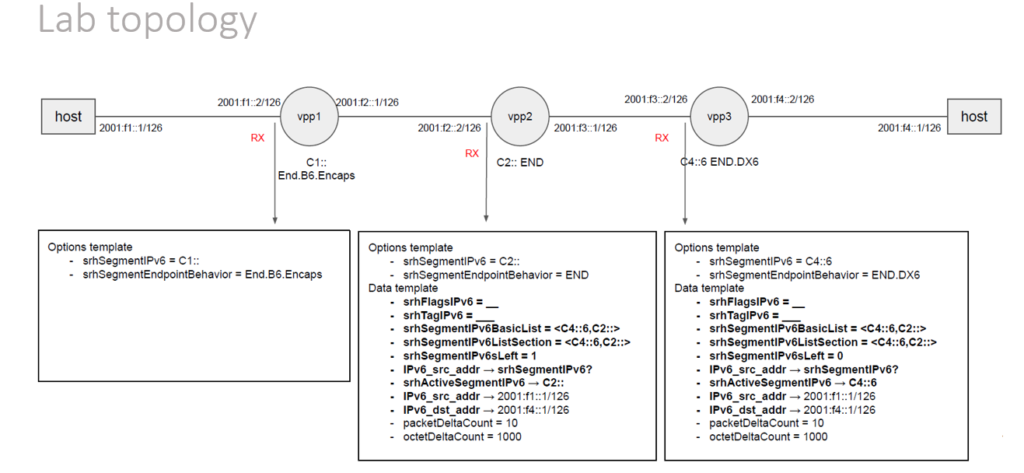
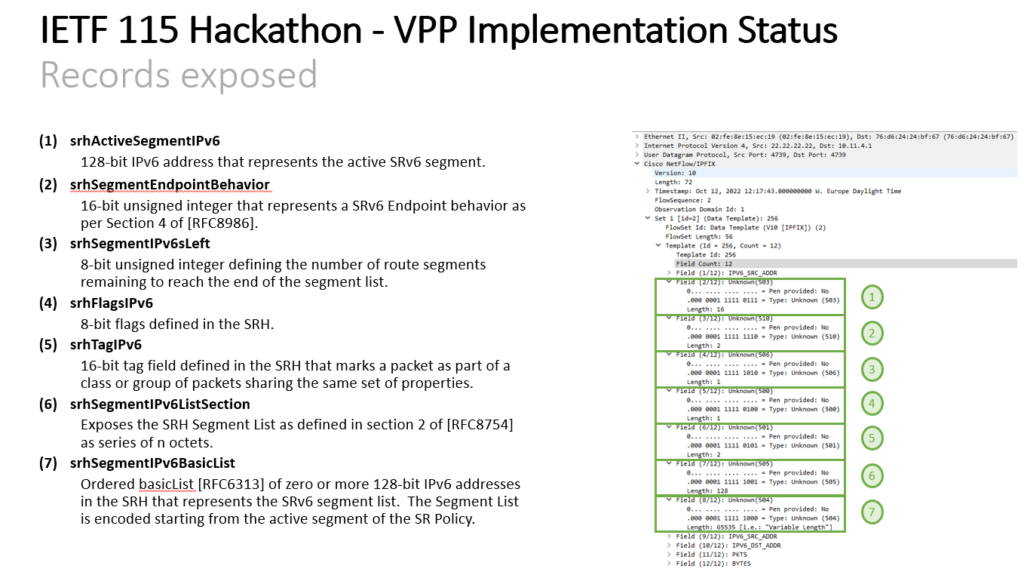
For the second implementation, we actually used a real live setup of 6 physical Huawei devices, to be able to monitor the SRV6 traffic engineering functionality.
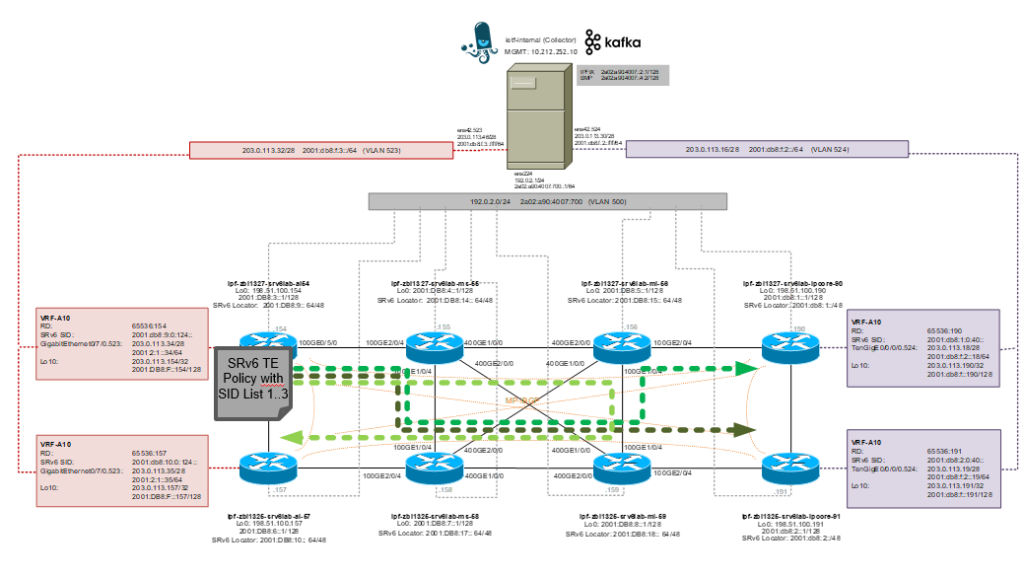
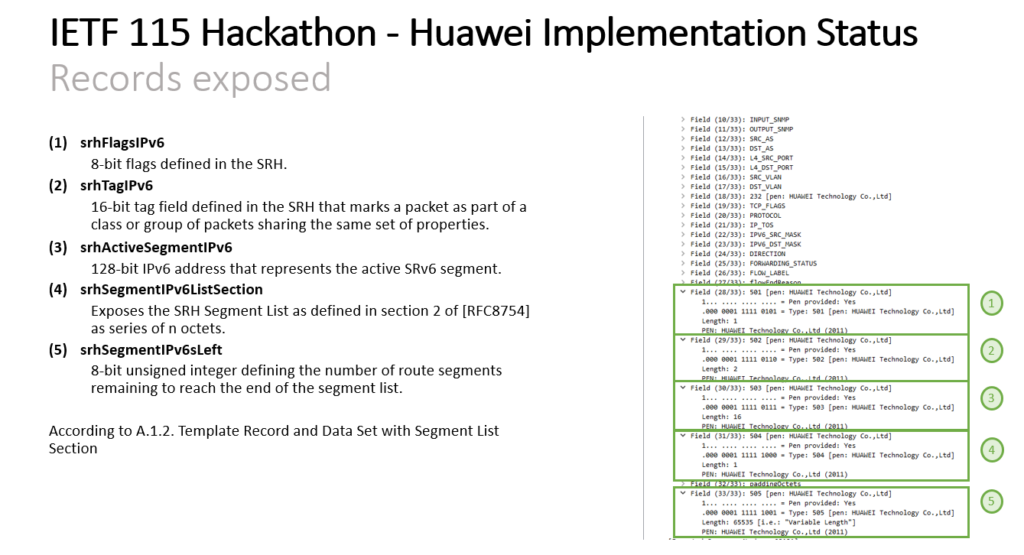
Both implementations export IPFIX SRv6 flow records to the opensource pmacct IPFIX collector, updated by Paolo Lucente to support the specific srhSegmentIPv6ListSection IPFIX Information Element.
We updated the draft with the two interoperable implementations, based on the Improving Awareness of Running Code: The Implementation Status Section (RFC7942):
Two interoperable implementations is a pretty high bar for a document to progress. Therefore, after Thomas Graf‘s presentation in OPSAWG, the Working Group Last Call (WGLC) should soon follow.
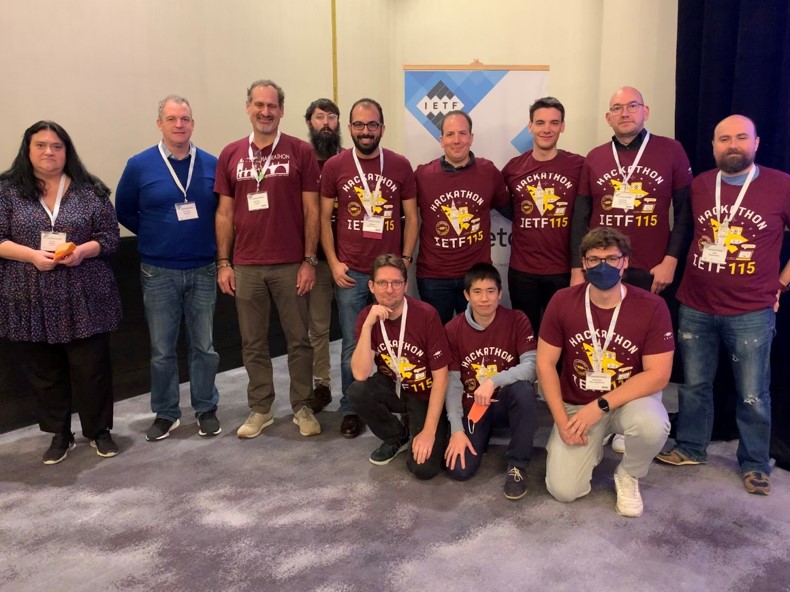
Our team, from left to right: Olga Havel, Michael Mackey, Benoit Claise, Jean Quilbeuf, Ahmed Elhassany, Yannick Buchs, Marco Tollini, Laurent Metzger, Urs Baumann … and in the front Thomas Graf, Alex Huang Feng, Severin Dellsperger.
This was really fun. Good job team!

